Introduction
“The Sacraments are signs and instruments of grace, instituted by Christ and entrusted to the Church, by which divine life is dispensed to us.”
Catechism of the Catholic Church, 1131
Learn about each of the sacraments below.

Baptism
“Through Baptism we are freed from sin and reborn as children of God; we become members of Christ, are incorporated into the Church and made sharers in her mission.”
Catechism of the Catholic Church, 1213-1274
Baptism is the first Sacrament of Initiation. Through baptism, a person is cleansed of all sin, reborn, and sanctified in Christ through water and the Holy Spirit.
The Grace of Baptism
We look forward to helping you plan your child’s baptism! If you have any questions, please contact the parish office.
Reconciliation
“Through Baptism we are freed from sin and reborn as children of God; we become members of Christ, are incorporated into the Church and made sharers in her mission.”
John 20:21-23
St. Patrick Church of Merna
FRI
12:00 pm – 4:00 pm
SAT
9:00 am – 10:00 am
Confessions are heard in the confessional marked “Fr. Matt” at the back of the church.
St. Mary Church in Downs
SAT & SUN
Immediately following weekend Masses
For 30 minutes
If you have any questions, please call the parish office.
The Sacrament of Reconciliation is a conversion of heart away from sin and toward God. It begins with remorse for having offended God and entails both a change in one’s life and a determination to avoid the further occasion of sin (Catechism of the Catholic Church, 1427-33).
The sacrament consists of four parts or acts of the penitent:
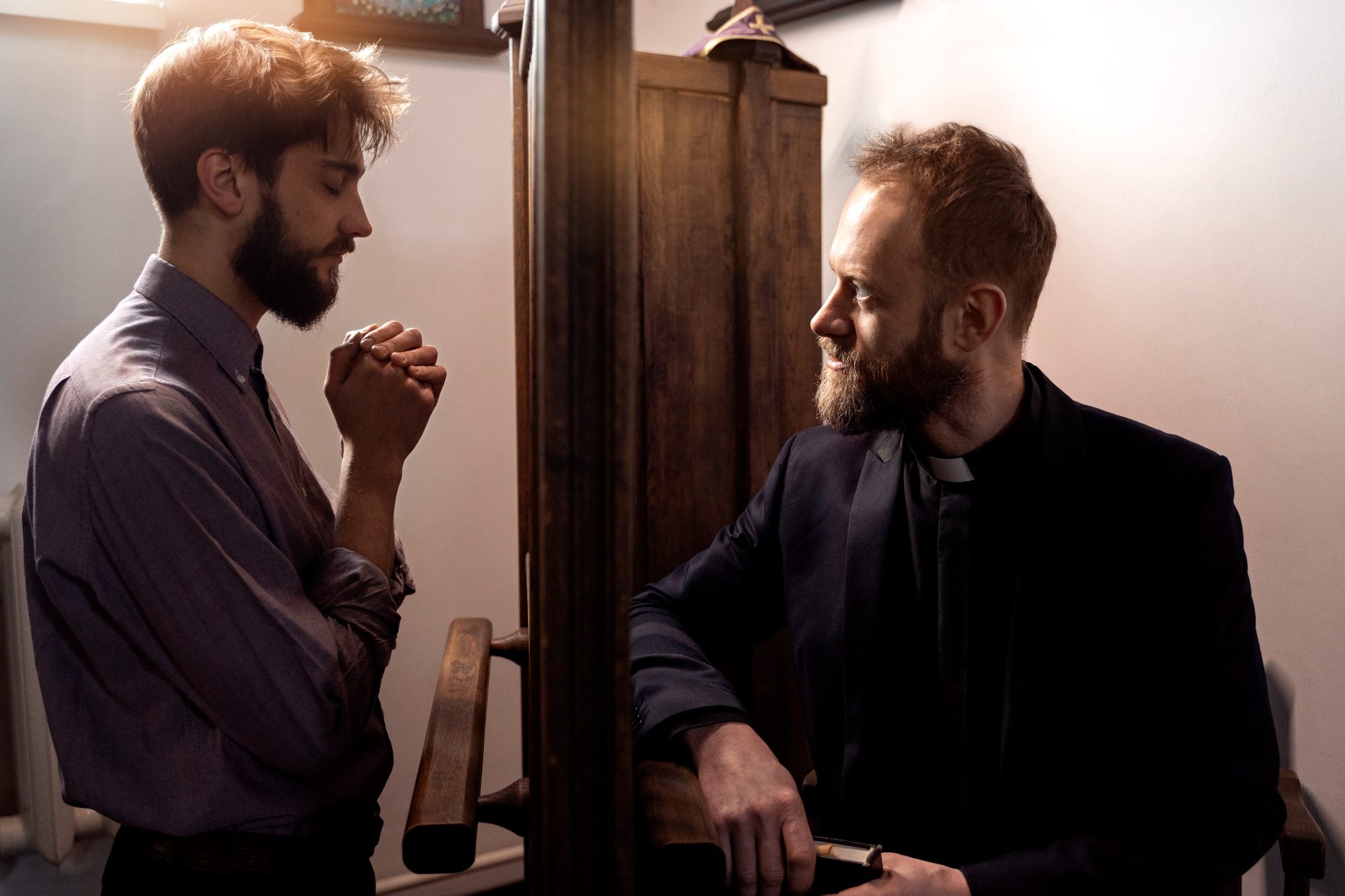
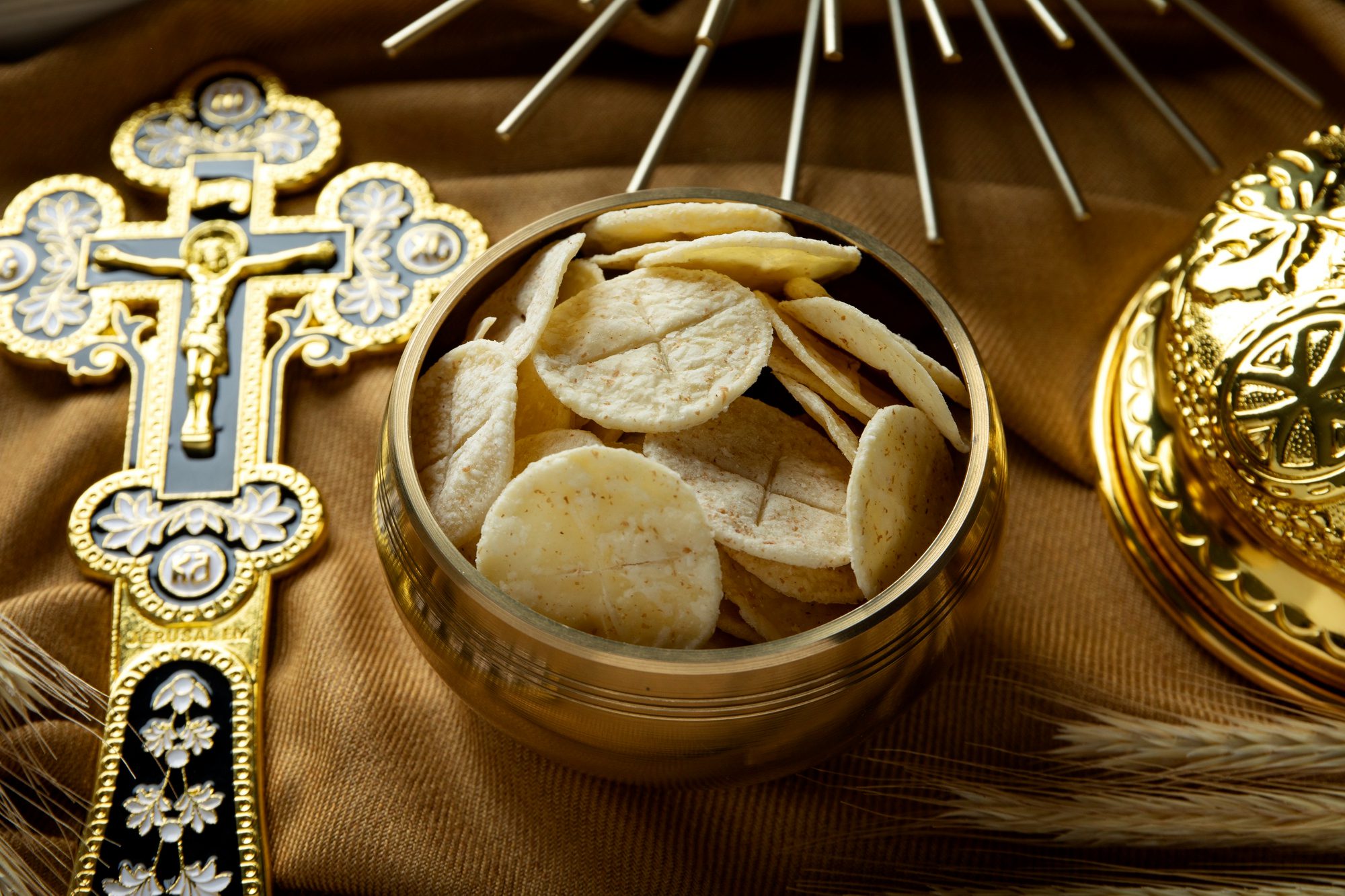
Holy Eucharist
“Amen, amen, I say to you, unless you eat the flesh of the Son of Man and drink his blood, you do not have life within you. Whoever eats my flesh and drinks my blood has eternal life, and I will raise him on the last day. For my flesh is true food, and my blood is true drink. Whoever eats my flesh and drinks my blood remains in me and I in him.”
John 6:53-56
The Eucharist is the “source and summit of the Christian Life” (Lumen Gentium, 11). It is the sacrament in which Christ is really and truly present under the appearances of bread and wine. The Sacrament of the Eucharist was described as follows by the Second Vatican Council:
At the Last Supper, on the night when he was betrayed, our Savior instituted the Eucharistic Sacrifice of his Body and Blood. He did this in order to perpetuate the Sacrifice of the Cross throughout the centuries until he should come again, and so to entrust to his beloved spouse, the Church, a memorial of his death and resurrection: a sacrament of love, a sign of unity, a bond of charity, a paschal banquet in which Christ is consumed, the mind is filled with grace, and a pledge of future glory is given to us (Catechism of the Catholic Church 1322-1419).
The Effects of the Eucharist
Confirmation
By the sacrament of Confirmation, the baptized are more perfectly bound to the Church and are enriched with a special strength of the Holy Spirit. Hence, they are true witnesses of Christ, more strictly obliged to spread and defend the faith by word and deed. Lumen Gentium 11; cf. OC Introduction 2.
Along with Baptism and the Eucharist, Confirmation is considered one of the three “Sacraments of Initiation.” Confirmation was instituted by Christ in his promise to send the Holy Spirit (John 14:15-21).
That promise found fulfillment at Pentecost when the Holy Spirit descended on the Apostles. The Apostles were transformed by the Holy Spirit, receiving the powers of speaking persuasively, performing miracles, and demonstrating the personal holiness of Christian life (Catholic Bible Dictionary, 159).
The Effects of Confirmation
Confirmation is the special outpouring of the Holy Spirit as once granted to the Apostles on the day of Pentecost (Catechism of the Catholic Church,1302-1303):
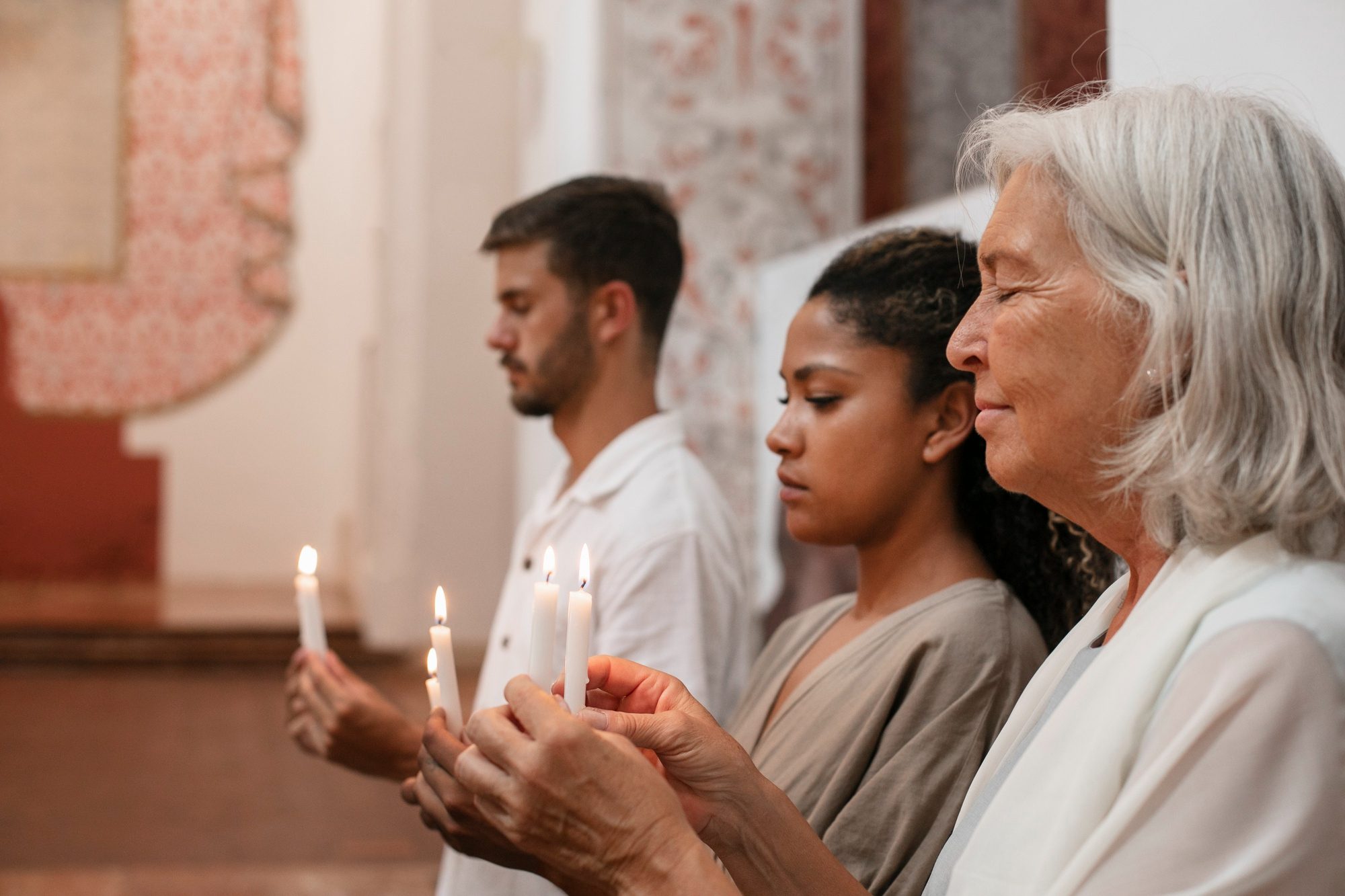
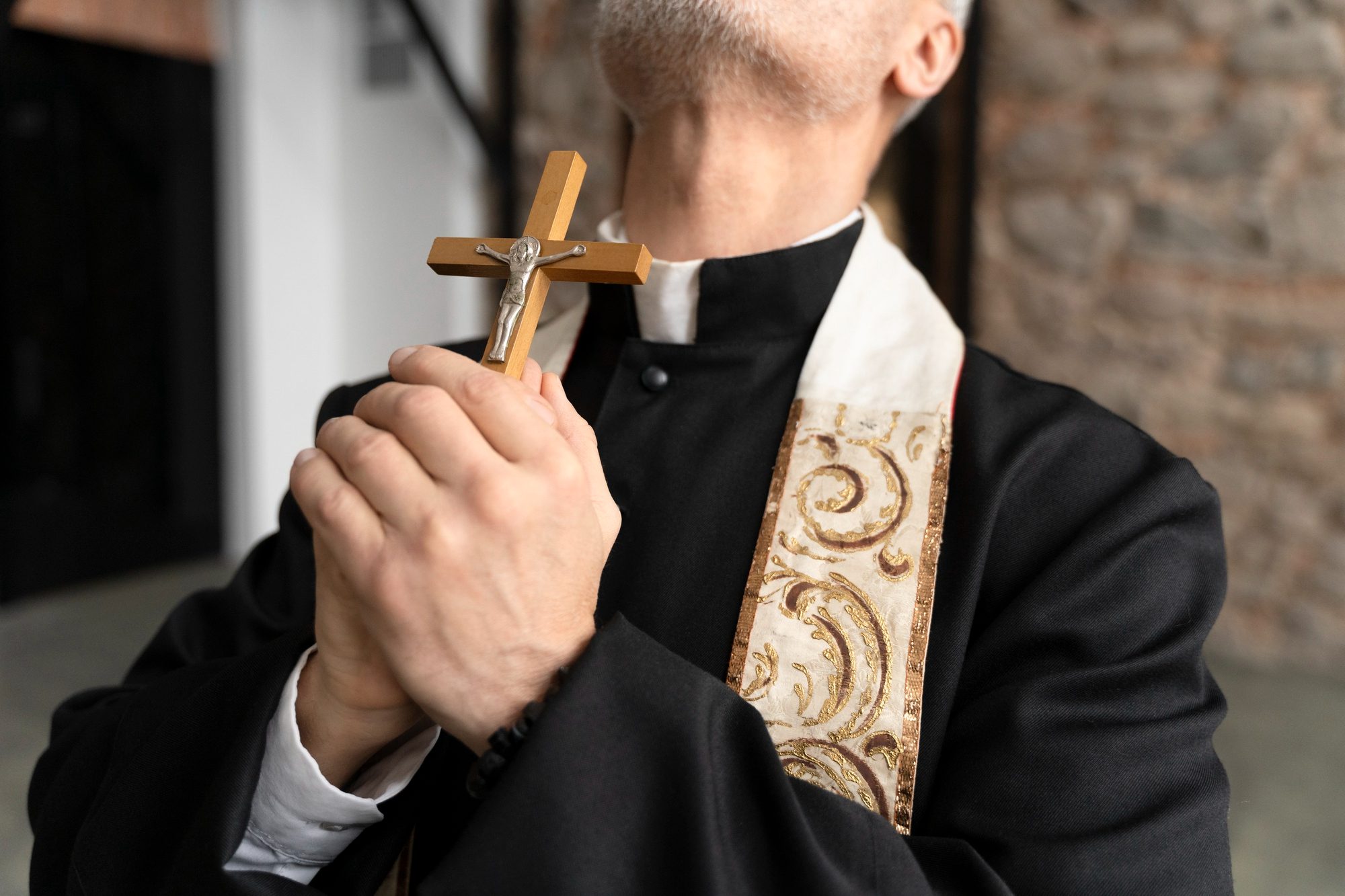
Holy Orders
“In the Church and on behalf of the Church, priests are a sacramental representation of Jesus Christ. They exist and act in order to proclaim the Gospel to the world and to build up the Church in the name and person of Christ, the Head and Shepherd.”
St. Pope John Paul II, Pastores Dabo Vobis
Marriage
“In the Church and on behalf of the Church, priests are a sacramental representation of Jesus Christ. They exist and act in order to proclaim the Gospel to the world and to build up the Church in the name and person of Christ, the Head and Shepherd.”
Matthew 19:5-6
Planning a wedding liturgy can be an overwhelming task. At our parish, we are honored and take seriously the responsibility of helping prepare you for a joy-filled and lifelong marriage.
For information and to schedule your wedding for either church, please contact the parish office. Our front office staff will be able to check date availability, outline the steps necessary to reserve a date for your wedding and assist with scheduling meetings with our priests. Once your date is confirmed, you will be in contact with our liturgical coordinator to plan your special day.

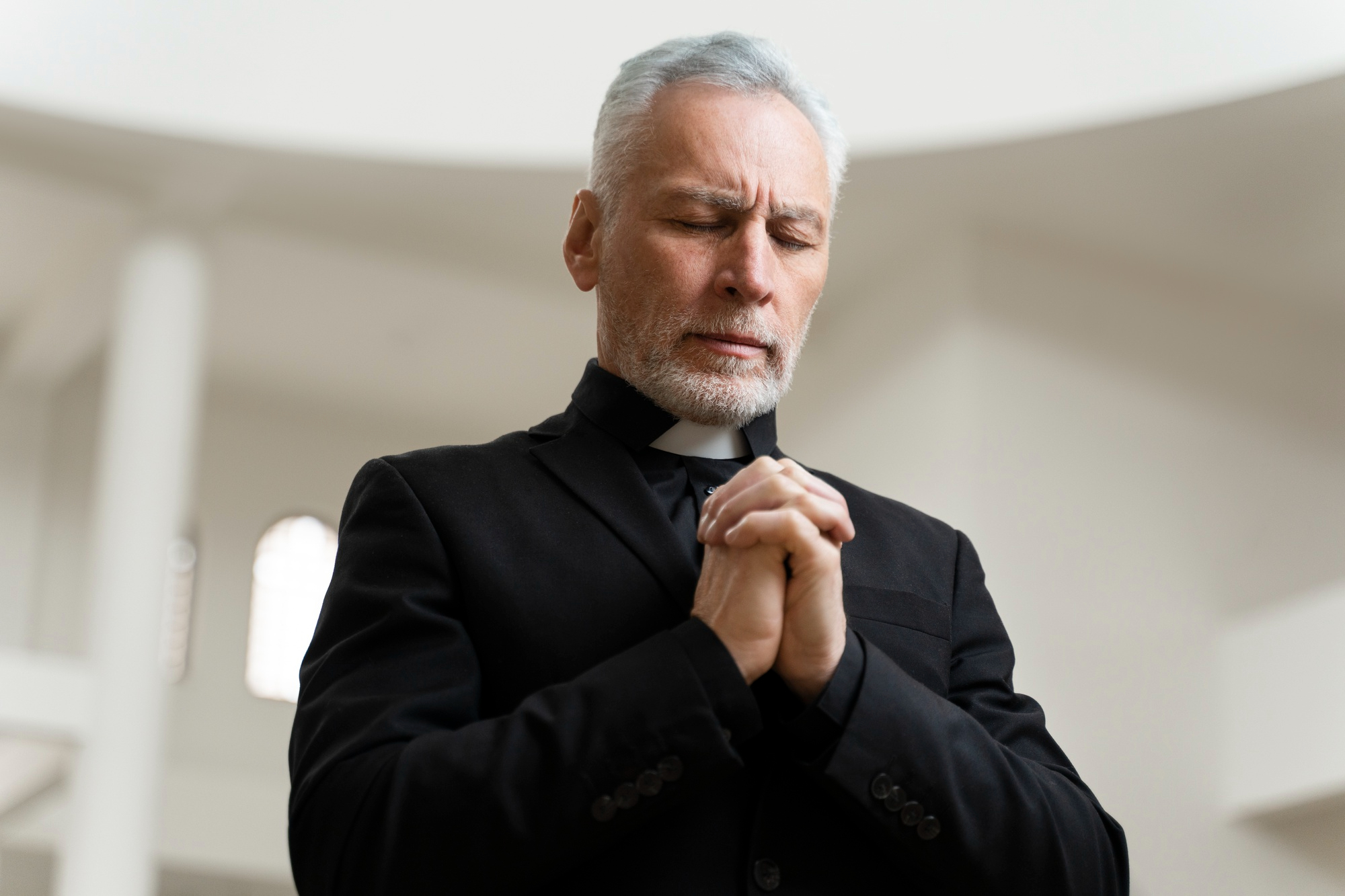
Anointing of the Sick
“By the sacred anointing of the sick and the prayer of the priests the whole Church commends those who are ill to the suffering and glorified Lord, that he may raise them up and save them.”
Catechism of the Catholic Church, 1499
What is Anointing of the Sick?
Known as one of the Sacraments of Healing, this sacrament was instituted by Christ to strengthen the sick and dying to face the challenges that come with illness, to intercede for the restoration of health, and to remit the sin of the infirm.
This sacrament is not only for those who are at the point of death. “When anyone of the faithful begins to be in danger of death from sickness or old age, the fitting time for him to receive this sacrament has certainly already arrived” (Catechism of the Catholic Church, 1514).
Therefore, the sacrament may be received by anyone who has a serious illness, those preparing for surgery, and those who suffer difficulties because of advanced age.
